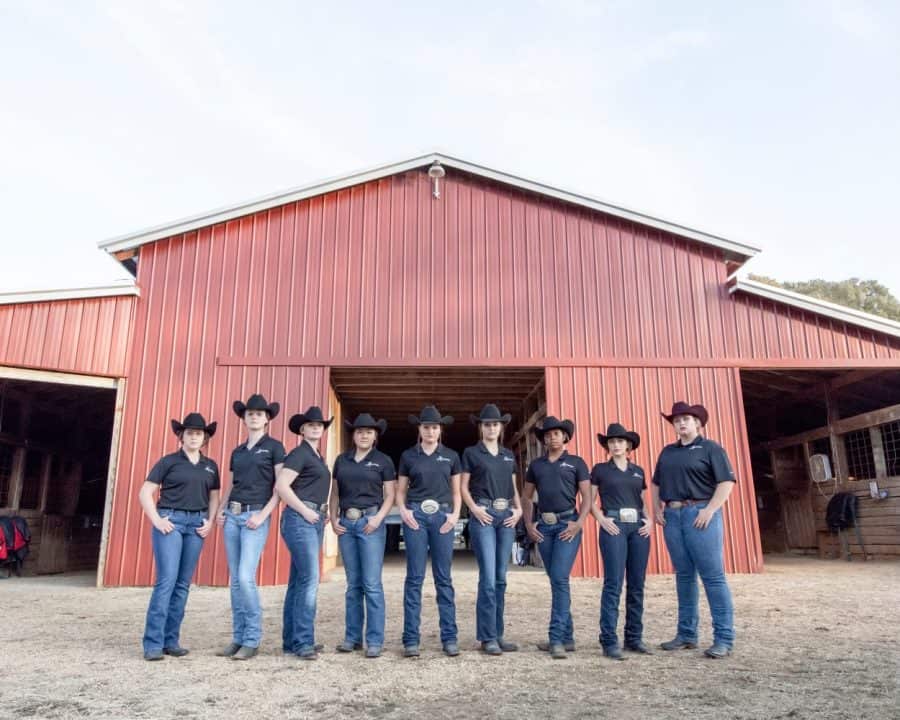COVID sidelines club sports
Courtesy of UA Equestrian Club
The equestrian club was financially impacted during the COVID 19 pandemic.
February 2, 2022
Club sports have faced setbacks during the COVID-19 pandemic. At The University of Alabama, some club sports teams were heavily impacted and suffered financially after a missed season.
Funding
Club sports are operated by student officers and funded mostly by membership dues, fundraisers, the Student Recreation Center and the Student Government Association.
Membership dues are paid by athletes each semester and range from $150 to $200. The funds that these teams receive from University Recreation are limited and require documentation to show the commitment of the team.
According to the Sports Club Resource Guide, 60% of the annual sports club allocation is distributed to teams based on need. To receive this kind of funding, teams are required to submit projected annual budgets and attend budget meetings.
For the team to receive a need-based allocation in the upcoming year, 80% of the current year’s allocation has to have been spent. If a team does not meet this requirement the balance will remain in its account, but it will not receive need-based funds for the upcoming year.
Because of this rule, some teams struggled to start back up when club sports resumed in fall 2021. Over time, teams lost major resources and struggled to maintain financial stability. Some were able to continue without any advances.
Water polo
The water polo team was able to continue normal operations without many struggles. Alabama junior Nick Ward is the president of the water polo team and has been a member since his freshman year.
Ward said the club still gets its regular allocations of funding from the recreation center, and they still had money left over to bring into the comeback season. The team also brought in additional funding from a fundraising contest with other club sports.
“We’ve been able to do everything we’ve needed to do with the funding that we’ve been given, especially this year, so we are better off than normal after coming out of COVID,” Ward said.
Ward and his team appreciate the amount that is given to them by the recreation center, but they continue to find ways to support themselves aside from the allocations.
“We have been starting to do more and more fundraisers,” Ward said. “We had a percentage night at [Red Bowl] Asian and we had a really big turnout, and they were really appreciative of us coming out and growing their business, and we were really appreciative of them.”
Hockey
The same can’t be said for the Alabama Hockey Club.
The club has been competing in the American Collegiate Hockey Association for 17 years. Alabama has competed at the Division I level since 2015.
Delaney Galbraith is the head of marketing and head of staff for the hockey club and thinks the University could do more.
“UA is really missing out with not helping this program,” Galbraith said. “The school has had every opportunity to help, and I’ve seen little to none come in. The staff members, players and fan base are what keep this program alive.”
Alabama hockey was on the brink of being kicked out by the Pelham Civic Complex, where the team practices and hosts games. Without help from the fans, the team would have no place to compete.
“Our fan support is incredible,” Galbraith said. “We have a pretty decent-sized fan base that has helped us overcome these obstacles like funding. Lots of fans will donate thousands of dollars to the program.”
In an effort to save its season, Alabama hockey created a GoFundMe page to raise $18,000 by Sept. 1, 2021. The page has yet to reach that goal, but the GoFundMe page is still live and has raised over $10,000.
Equestrian club
The hockey club is not the only team that relies heavily on fundraisers. The UA Equestrian Club was hit hard financially, and the hopes for the season were slim.
In March 2020, the equestrian team was demoted from a varsity sport to a club sport, forcing the team to turn to fundraising when its University funds were cut.
Vice President Abigayle Kneebone started a petition to have the decision reversed, but more than 22,000 signatures couldn’t change the University’s mind.
The allocation from the Student Recreation Center forced the team to change its program and caused some members to transfer schools to continue to practice the sport they love.
“I know a lot of girls who came to The University of Alabama specifically for the equestrian team,” Kneebone said. “Without a funded team, it simply is not worth it, especially with out-of-state tuition.”
This story was published in the Justice Edition. View the complete issue here.
Questions? Email the Sports desk at sports@thecrimsonwhite.com.





















